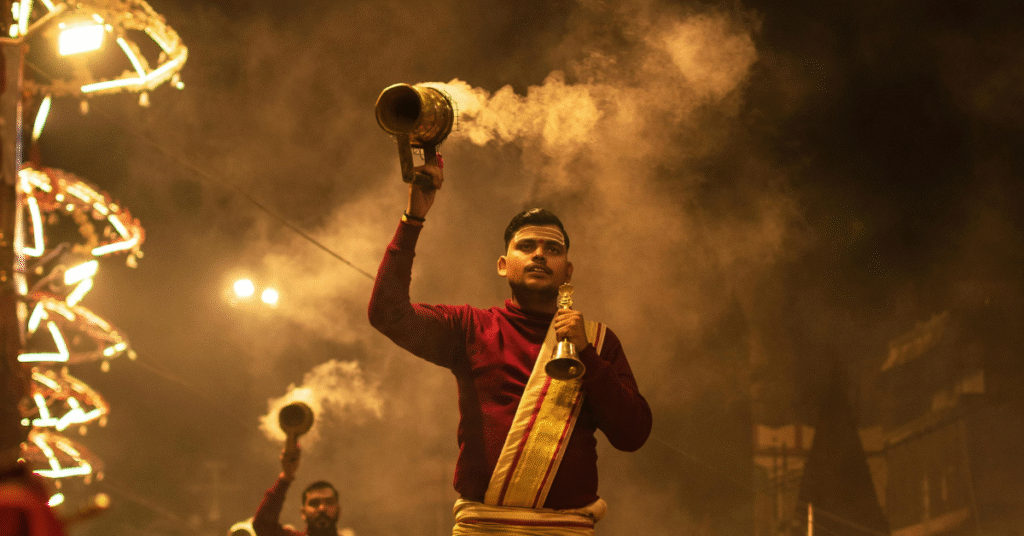The Significance of Dev Diwali : Dev Diwali, also known as the Festival of Lights for the Gods, is a significant Hindu festival celebrated to honor the gods and goddesses. This comprehensive article explores the history, rituals, and traditions of Dev Diwali, highlighting the importance of honoring the divine during this auspicious occasion. Learn about the celebrations and festivities associated with Dev Diwali, and discover ways to participate in this sacred festival.
The Significance of Dev Diwali

Introduction to Dev Diwali
The Significance of Dev Diwali : Dev Diwali, also known as Kartik Purnima, is a Hindu festival celebrated on the full moon day in the month of Kartik (October-November). It is a day dedicated to honoring the gods and goddesses, expressing gratitude for their blessings and seeking their continued protection and guidance. Dev Diwali is celebrated with great fervor and devotion in various parts of India, particularly in the holy city of Varanasi.
History and Origins of Dev Diwali
The Significance of Dev Diwali : The origins of Dev Diwali can be traced back to ancient Hindu scriptures and legends. According to Hindu mythology, Dev Diwali marks the day when the gods descended to earth to celebrate the victory of Lord Shiva over the demon Tripurasura. It is believed that on this day, the gods illuminated the earth with millions of diyas (oil lamps) to welcome Lord Shiva and express their joy and gratitude.
Rituals and Traditions of Dev Diwali
Dev Diwali is celebrated with various rituals and traditions that symbolize devotion, gratitude, and purification. One of the main rituals of Dev Diwali is the lighting of diyas and candles to illuminate homes, temples, and streets. Devotees also offer prayers, perform aarti (ritual worship), and chant mantras to invoke the blessings of the gods. In Varanasi, devotees take a holy dip in the Ganges River and participate in elaborate ceremonies and processions.
Importance of Honoring the Gods during Dev Diwali
Honoring the gods during Dev Diwali is of utmost importance in Hindu culture. It is believed that by expressing gratitude and devotion to the gods, one can receive their blessings and protection. Dev Diwali is a time to reflect on the divine presence in our lives, seek forgiveness for past wrongdoings, and renew our commitment to spiritual growth and enlightenment. By honoring the gods during Dev Diwali, devotees strengthen their faith and deepen their connection to the divine.
Celebrations and Festivities of Dev Diwali
Dev Diwali is celebrated with great enthusiasm and joy across India. In Varanasi, the festival is marked by grand processions, cultural performances, and fireworks displays. The ghats of the Ganges River are illuminated with thousands of diyas, creating a mesmerizing sight. Devotees offer special prayers at temples, perform rituals at home, and exchange sweets and gifts with loved ones. Dev Diwali is a time of unity, harmony, and spiritual upliftment for all who participate in its celebrations.
FAQ
1. When is Dev Diwali celebrated?
Dev Diwali is celebrated on the full moon day in the month of Kartik (October-November).
2. What is the significance of lighting diyas during Dev Diwali?
The lighting of diyas symbolizes the victory of light over darkness and the dispelling of ignorance.
3. How can I participate in Dev Diwali celebrations?
You can participate in Dev Diwali celebrations by lighting diyas, offering prayers, attending temple ceremonies, and sharing the joy of the festival with family and friends.
Ways to Participate in Dev Diwali Celebrations
1. Light diyas and candles to illuminate your home and surroundings.
2. Offer prayers and perform aarti at a nearby temple or shrine.
3. Participate in cultural events, processions, and fireworks displays in your community.
4. Donate to charitable causes and help those in need during the festival.
5. Share the joy and blessings of Dev Diwali with family and friends by exchanging sweets and gifts.



